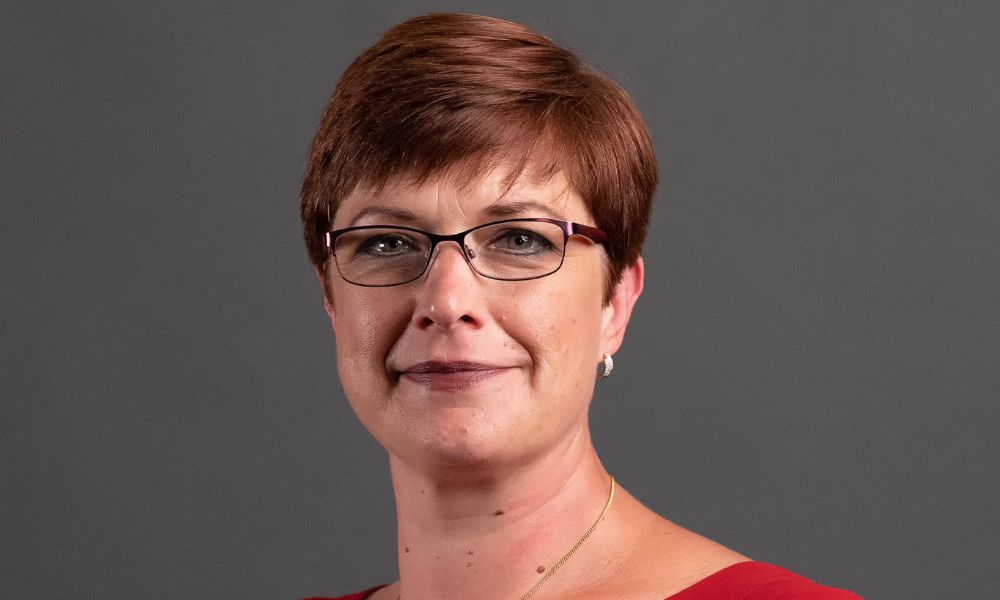Insurance and regulation: NZ fire & general brokers “remain concerned”

Insurance and regulation: NZ fire & general brokers “remain concerned” | Insurance Business New Zealand
Insurance News
Insurance and regulation: NZ fire & general brokers “remain concerned”
IBANZ chief executive Melanie Gorham talks about lost opportunity
Insurance News
By
Terry Gangcuangco
Following the regulator’s release of the final guidance for the intermediated distribution of financial products in New Zealand, concerns linger among fire and general insurance brokers, according to the trade body representing them.
Commenting on the guidance published by the Financial Markets Authority (FMA) – Te Mana Tātai Hokohoko in June, Insurance Brokers Association of New Zealand chief executive Melanie Gorham (pictured) told Insurance Business: “We on the broker side remain a bit concerned that there’s still a duplication of oversight going on.
“We had submitted to the FMA that we really felt, for FAP-licensed (financial advice provider) intermediaries, that the insurers should be able to rely on the conduct obligations on those intermediaries and that the licence hinges on it, and therefore they didn’t really need to check on conduct and those sorts of things.”
Gorham also cited misgivings about what the FMA considers a “shared responsibility” between brokers and insurers.
In its guidance, the watchdog said: “Our view is that fair treatment is a shared responsibility of financial institutions and intermediaries. Intermediated distribution often requires collaboration between financial institutions and intermediaries, and they should both have the fair treatment of consumers at the heart of everything they do.
“‘Shared’ means we expect that institutions and intermediaries will collaborate where it is appropriate and necessary to ensure consumers are treated fairly.”
According to the regulator, “shared” does not mean compromising the commercially and legally separate relationship between financial institutions and intermediaries but means they must comply with their respective legal obligations to consumers and their contractual obligations.
“We were quite concerned at the FMA stating that they called it a shared obligation,” Gorham said when she sat down with Insurance Business. “So, in our submission, we made the point that while both the intermediaries and the financial institutions, or the insurers [in our case], have conduct obligations, they come under different legislation. There are some quite significant differences.
“Under the FMCA (Financial Markets Conduct Act) for the FAPs, it comes down to the individualised advice that they’re giving, and obviously they have to manage conflicts. And when it comes down to things like training, etc., they need to make sure that the adviser is getting the training that that adviser needs for the advice that it gives.
“Whereas from the insurers’ perspective under CoFI (Financial Markets (Conduct of Institutions) Amendment Act 2022), it’s very much a general conduct piece. They don’t have that conflict piece to avoid, unless they’re operating as a FAP – in which case, they’re probably not going to involve an intermediary. And, again, the training is of a general nature.”
While Gorham’s camp appreciates the fact that the FMA “did go a little bit further” to explain what it means by “shared” and acknowledged the two different pieces of legislation that come into play, apprehensions remain that “it’s not clear cut,” the CEO said.
‘Lost opportunity’
When the FMA released the final guidance, it noted that the draft was informed by a series of workshops held with financial institutions and intermediaries in 2022. That initial version was then finalised following consultation earlier this year during which 15 submissions were received.
According to Gorham, when the workshops were held, the sectors – from fire and general insurance to life and health, as well as investment and banking – were regarded separately.
“That worked quite well,” she said. “That helped focus one on fire and general and how it is that that relationship works and what that sector does, which helped inform the FMA better about some of the nuances…
“Somewhat unfortunately, I think, when they came to give the guidance, then they put it all back into guidance across the whole financial institution sector. I feel that that was possibly a slight lost opportunity, where their guidance could have been a bit more specific, because there are big differences.”
The law firm previously said: “While the FMA’s desire to maintain flexibility and avoid prescriptive, one-size-fits-all compliance between varied institutions is understandable, the guidance leaves many questions unanswered. For instance, in a number of places it refers to the FMA having heard concerns, but then does not necessarily assist in how CoFI institutions and intermediaries may resolve those concerns.
“In our view, the high-level and principles-based nature of the guidance is likely to limit how helpful it is to CoFI institutions in practice. They will be needing to put their compliance into operation, and principles-based guidance for a principles-based regime provides limited direction as to how to actually do so.”
Meanwhile, as more regulation and oversight come in, Gorham is concerned about the continued availability of independent financial advice.
“Given the amount of change that has come in already for financial advice providers, we are worried that it eventually gets to a point where – and we’ve already seen it – that starts to make those advisers think twice about whether they will operate in certain markets, which is not good for clients if you want financial advice and it to be independent,” Gorham told Insurance Business.
“It’s like a stacking of issues. We fully support professionalism. We fully support raising standards. But as we have often submitted and talked to ministers and agencies about, there is really a limit to what can be achieved while trying to balance the cost associated with it – because you need to have clients who are willing to pay for those costs, because ultimately they do pay for them.”
What do you think about this story? Share your thoughts in the comments below.
Related Stories
Keep up with the latest news and events
Join our mailing list, it’s free!






